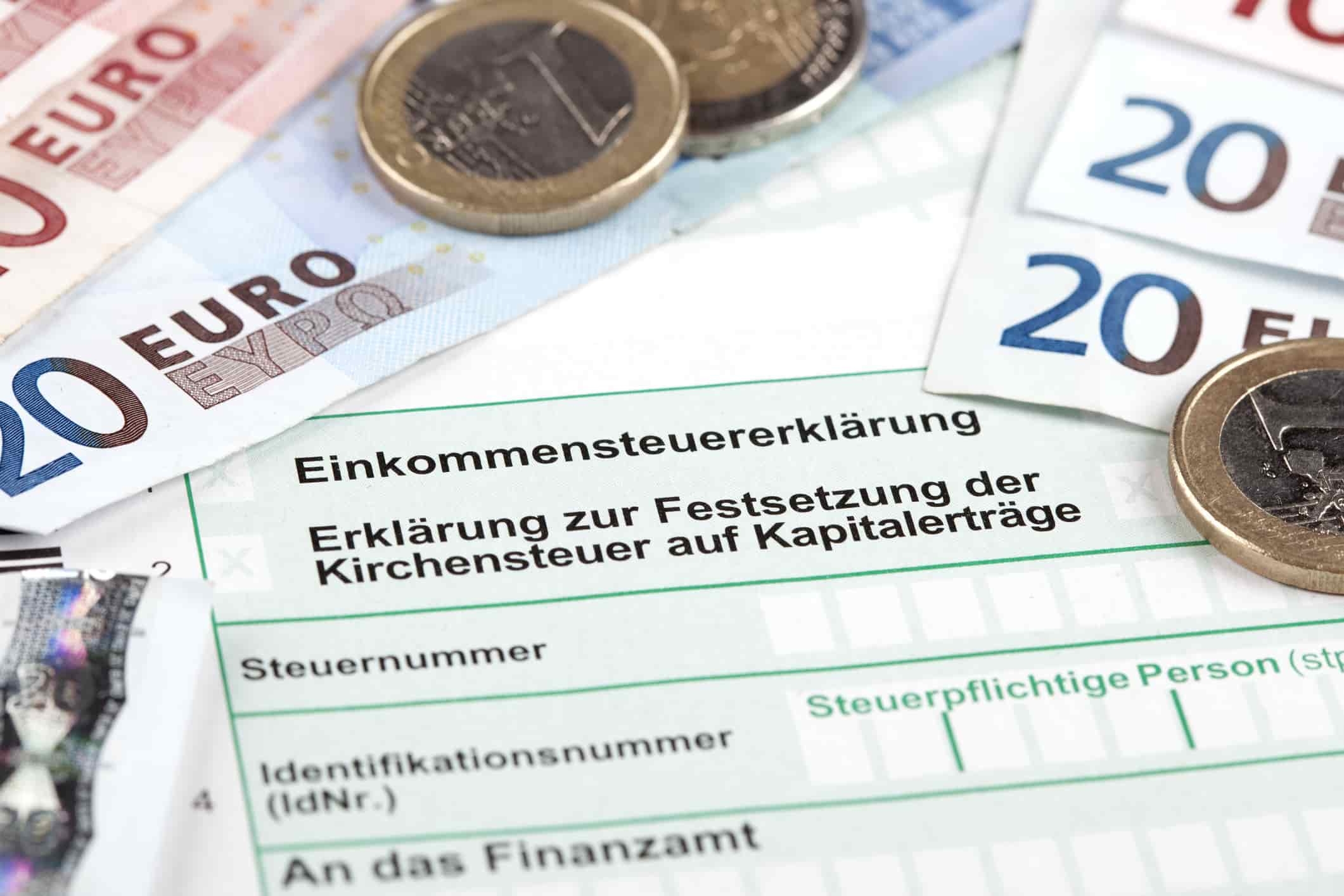Last-Minute Tax Filing Tips for foreigners in Germany
Work abroad in Germany and haven’t filed your tax return just yet? That’s okay, there’s still time!
The filing deadline for the 2022 tax year has been extended to 2 October 2023. This will give you more time to file for the previous year.
If you are planning to file with a tax agent, the deadline for the 2022 tax year has been extended to 31 July 2024.
The average German tax refund is €1,020, that’s a sum you don’t want to miss out on!
In this article we’ll share with you:
1. Introduction to taxes in Germany:
- How does the German tax system work?
- Is it mandatory to file a tax return in Germany?
- When should I file a tax return in Germany?
- How long does it take to get a tax refund in Germany?
2. Last-minute tips for filing your taxes in Germany
Apply for your German tax refund!
Introduction to tax filing in Germany
How does the German tax system work?
To put it simply, if you earn money in Germany, you must pay income tax on it.
As the amount you earn goes up, so does the percentage of tax you need to pay.
Read also: Your Bullsh*t-Free Guide to Taxes in Germany
Is it mandatory to file a tax return for foreigners in Germany?
As an employee, you don’t necessarily have to file a return, specifically if a salary is your only source of income, however, filing voluntarily can be a good idea.
Whether or not you need to file a tax return depends on your individual circumstances, such as your income level, sources of income, and various other factors.
Circumstances in which you’ll need to file a tax return in Germany include if:
- You have multiple sources of income, such as employment income, and your total income exceeds certain thresholds
The threshold for a single person in 2022 was €10,347 and €10,908 in 2023 - this is known as the tax-free allowance and you are only taxed on income earned above this amount.
You are self-employed or a freelancer
- You received income subject to wage tax (Lohnsteuer) from more than one employer simultaneously
- You received income outside of Germany that is taxable in Germany
- You are eligible for certain tax deductions or credits and want to claim them
Despite your circumstances, it’s a good idea to file, as you may be eligible for a tax refund.
When should I file a tax return in Germany?
As already mentioned, the tax deadline for 2022 has been extended.
For the 2022 tax year, you can file before 2 October 2023 or you’ve got until 31 July 2024 if you’re filing with a tax agent.
Whereas, for the 2023 tax year, the tax deadline is 2 September 2024 if you’re filing yourself and 2 June 2025 if you’re filing with a tax agent.
How long does it take to get a tax refund in Germany
The short answer is - it depends.
When it comes to how long it takes to process a German tax return, it can be difficult to say exactly, that’s because it can vary depending on various factors, such as:
- Complexity of your tax return
- The workload tax authorities have
- Method of submission - generally, electronic submissions tend to be processed faster than paper-based submissions
- The volume of tax returns being processed by the tax authorities during specific periods, such as the tax filing season
Therefore, there is no specific timeframe for your return to be processed, instead, it can take up to six months from the submission date.
Next up we have some last-minute tips for filing in Germany.
Apply for your German tax refund!

Last-minute tips for filing your taxes in Germany
1. Gather all necessary documents
Make sure you’ve got all the relevant documents you need in order to file your tax return.
These can include income statements (e.g., salary, pensions, investments), expenses (e.g., medical bills, education expenses), and receipts for deductible expenses (e.g., donations).
What documents and information do I need for my tax return in Germany for foreigners?
When filing in Germany, you will need to gather various documents and information to ensure accurate and complete reporting of your income and expenses.
The documents and information you need can vary depending on your individual circumstances, but here is a general list of documents often required for a typical tax return:
Personal Information:
- This is your personal identification details such as name, address, and tax identification number (Steuernummer)
- If you’re married, you also need to provide your spouse’s personal information to receive married tax benefits
Income statements:
- You’ll need to obtain them from all your employers for the tax year
- You also need to provide statements for any additional sources of income, such as rental income, self-employment income, pension, unemployment benefits, or social welfare payments
Expenses and Deductions:
- These can be receipts and invoices for work-related expenses (e.g., travel, professional training, work-related equipment)They also include medical and healthcare expenses, including receipts for doctor visits, prescriptions, and health insurance payments
- Also, consider if you have donations to charities and obtain these receiptsYou may also have childcare expenses so have receipts for any child-related costs
Investments:
- If you have investments, you’ll need investment and savings documents such as statements from banks and financial institutions showing interest income, dividends, or capital gains from investments
- If you sold assets such as stock or property, provide documentation of any losses or gains from the sale
Health Insurance:
- Provide proof of health insurance coverage and payments
As a foreigner filing a tax return in Germany, you will generally need the same types of documents as a German resident. However, there may be some additional documents specific to your situation, such as proof of residency in your home country, foreign income statements, or work visa/permit documentation, etc.
2. Optimise your taxes in Germany by checking for deductions and allowances
You can optimise your taxes in Germany by making sure you claim tax back on all eligible deductions and tax credits available to you to minimize the amount of tax you need to pay. This can lower the amount of your income that gets taxed, helping you pay less tax overall.
Some common deductions include work-related expenses, healthcare costs, charitable donations, commuting costs and certain investment-related expenses.
Make sure that you provide proper documentation to support your claims.
3. Make use of the one-fifth method for severance payments
Ever heard of a severance payment? You may receive this as a benefit or compensation from your employer if your employment terminates.
Note that severance payments are subject to tax and are categorized as extraordinary income.
What is extraordinary income?
Extraordinary income is a one-time payment that is earned over an extended period. It’s paid out as a lump sum and it’s subject to tax.
As already mentioned, severance payments are categorized as extraordinary income.
If you have received a severance payment, you can make use of the one-fifth rule.
What is the one-fifth rule in Germany?
The one-fifth rule essentially lowers your tax burden by spreading the amount of tax you pay for severance payments over five years.
By using the one-firth rule in Germany, you can lower your tax burden.
4. Report any foreign income
Have any foreign income? You'll need to report it in your German tax return for foreigners .
Foreign income may be any of the following:
- Employment like salary, wages, bonuses, or other compensation earned
- Business profits which are income generated from operating a business or conducting trade activities
- Investments, including investments made in foreign stocks, bonds, real estate, or other financial instruments
- Rental income from renting out property or assets
- Royalties, which are payments that you received for the use of your work or property
- Dividends, this is any payment you receive from a company as a shareholder
If you do have to report foreign income on your tax return, know that double taxation agreements may apply to avoid being taxed twice on the same income.
However, if you are not a tax resident in Germany, you generally don’t need to report foreign income on your tax return in Germany for foreigners.
Tax residency is determined by your physical presence and other factors, such as the duration of your stay, family ties, etc.
So if you’re a non-resident in Germany, you are typically subject to taxation only on income that has its source within Germany. Foreign income earned while you are a non-resident is usually not taxable in Germany.
Therefore, make sure you check your residency status before filing in Germany.

5. Submit your tax return electronically
Filing your tax return electronically is recommended for multiple reasons, such as:
- It’s faster and more convenient - you typically have step-by-step guidance, automated calculations, and error checks, making the process easier and less time-consuming
- Electronic submissions are usually processed faster by the tax authorities compared to paper returns, meaning you may receive any potential tax refunds more quickly
- You can also make use of customer support and assistance, which can be helpful if you have questions or need guidance while preparing your tax return
- Can reduce the likelihood of manual entry errors that can occur with paper filing, minimizing the risk of mistakes on your tax return
6. Seek professional help
Consider seeking assistance from a tax advisor (like Taxback!), as they can help you navigate the complexities and ensure accurate filing.
Why?
Because they are the experts and have the knowledge - they know the laws, regulations, and procedures and can ensure your tax return is prepared accurately and in compliance with current regulations.
They will maximize any deductions and credits you’re entitled to - tax agents can identify potential deductions, credits, and tax-saving opportunities that you might have overlooked.
If you have complex financial arrangements, such as foreign income, multiple sources of income, investments, rental properties, or self-employment income, a tax agent can navigate the complexities and ensure all aspects of your tax situation are appropriately addressed.
Tax agents are experienced in accurately preparing tax returns, reducing the likelihood of mistakes.
Preparing a tax return can be time-consuming, especially if you are not familiar with the process. Hiring a tax agent frees up your time, allowing you to focus on other important aspects of your life or business.
Remember that filing your taxes accurately and on time is essential to avoid penalties or unnecessary stress, so don't hesitate to seek advice from a tax professional for assistance.
These tips should help you get started and make the process more manageable. Good luck with your tax filing!

How do I file my tax return online in Germany?
You can file on your own or with a tax service provider like Taxback.
By choosing to file with Taxback, you can say goodbye to tax stress and hello to a smooth tax return!
We'll make sure you get all the deductions and allowances you're entitled to, so you can enjoy the maximum legal tax refund straight to your bank account, no matter where you are in the world.
Why choose Taxback?
- We have 27+ years of experience in international tax and we filed over one million tax returns in Germany for foreigners to date!
- We will keep you compliant with Germany’s tax authorities
- Our Live Chat team are on hand 24/7 to answer any questions you may have
Don't miss out on what’s yours, apply with Taxback today!
FAQ
Do overseas workers in Germany need to file tax returns?
It depends on your situation. If your income surpasses certain thresholds, or you have multiple income sources, self-employment, foreign income, or specific deductions, filling may be necessary for benefits.
When are tax returns due for foreigners in Germany?
For 2022, the deadline is 2 October 2023 for individual filling and 31 July 2024 with a tax agent. In 2023, it’s 2 September for self-filing and 2 June with a tax agent.
Can overseas workers reduce taxes through deductions in Germany?
Absolutely. Claiming deductions for work-related costs, healthcare, donations, and more can lower taxable income. Expert advice and proper documentation enhance your potential refunds.




